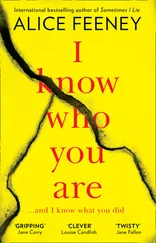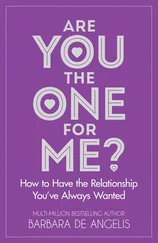IT SNOWED ALL DAY SATURDAY. Corinne and I made hot chocolate and popcorn and shuffled through her collection of pirated movies in search of something to watch.
“I’m sick of all of these,” she said, “but it’s too cold to walk to the video store.” There was a small English-language video-rental place just off Malaya Bronnaya, near the church where Pushkin married, but it was a good ten minutes away. “Welcome to winter in Moscow,” she said. “The key is to leave the house only when necessary.”
We settled for old episodes of Fawlty Towers on the BBC. We sat together on the kitchen sofa, sharing the heavy wool throw. The usually unflappable Corinne was out of sorts that day.
“I told myself I’d stay here for two years,” she said. “But sometimes I’m not sure I’ll make it. It’s good for my career, but it’s killing me.” She clutched her mug with both hands and stared into it, as if trying to read signs in the marshmallows. I’d never seen her so calm. She was still in her robe—it was creamy silk and printed with birds in flight—and without her signature red lipstick she looked frail.
“Are you okay?” I said.
“I’m just tired. I’ve been here almost a year, and we haven’t even published an issue yet. We’re just laying the groundwork for launch, greasing the wheels. I’m starting to wonder if it will ever happen. Most days I’m impressed if the phones work. I’m thirty years old, and I’m tired. Sometimes I just want to go home.”
I envied her knowing where she belonged. “Maybe I shouldn’t take this job,” I said.
“Don’t listen to me. I’m just cranky today. If you want to be a journalist, you should stay,” she said. “There are big stories here.”
“Do you remember Jennifer Jones?” I said.
“The old Hollywood actress?” she said. “What about her?”
“Nothing,” I said. “She just popped into my head.”
Corinne said I needed to figure out what I wanted. What I really wanted was to hear Jenny say, I missed you. But I knew I had inherited my mother’s habit of holding on too tight. No one cared about my Jennifer Jones anymore. The Berlin Wall fell; the Soviet Union collapsed; I was no longer a wallflower. Why was I still obsessed with Jenny?
* * *
LATE ON SUNDAY MORNING, Andrei picked me up in a large four-wheel-drive vehicle painted a dark green reminiscent of a tank.
“Is this yours?” I said. Very few Russians owned cars in 1995.
“I borrowed it from my father,” he said.
I’d brought orange tulips—thirteen of them, purchased from one of the twenty-four-hour flower kiosks—and I put the bouquet in the back. There were two shopping bags propped on the seat. Through the plastic I could see the outline of soda cans.
“You want a Coke?” Andrei said. “I brought some for you.”
“Aren’t you supposed to be hawking Czar?” I said.
“Czar is owned by Coca-Cola.”
“What?”
“They’re trying to gain market share by launching a Russian brand. They’re not going to tell people it’s owned by Coke, but, you know, that’s why one of Coke’s roster agencies is doing the campaign.”
“So an American company is using Russian nationalism to sell a Russian brand that is actually American?” I said.
“An American company with a British creative director and Russian copywriters,” he said.
“That’s insane.” Everyone is potentially under opposition control, I thought.
“Eto biznes,” he said. It’s business. “Someday perhaps a Russian company will own Coca-Cola and Czar will be the flagship brand.”
“How did you end up working in advertising?”
He shrugged. “My father knows Misha. The managing director. Every foreign firm needs a Russian partner to get started.”
“You mean to handle the bribes.”
“So many opinions, Sarushka,” he said. “As if your country is not corrupt. It will take us about an hour to get there. You mind if I smoke?”
“I do, actually,” I said.
“Okay,” he said. “You’re the boss.”
“How old were you when you met Zoya?”
“I don’t know. Thirteen? She was probably twelve. My parents took me to see her before we went to Washington, so she could tell me what it was like there.”
So Andrei met Zoya about the same time Jenny died. It was possible that he met her right after she assumed her new identity. “And what did she tell you?” I asked.
“She told me about the embassy apartment building, about the school. She told me about your cherry blossoms.”
“She went to the embassy school?”
“Of course. We all did. When she was there, the embassy office buildings were not yet open, but the school and the residential areas were complete in 1979, so ...”
“You’re sure she went to the embassy school?”
“I told you, we hardly left the embassy grounds.”
“And her Russian?” I said. “When you met Zoya, how was her Russian?”
“Do you always ask so many questions?”
“I’m curious. And I’m practicing to be a journalist.”
“Actually, the first few times we met, we spoke English. My parents wanted me to practice with her because she was fluent. My English was terrible in those days. My parents hoped that talking with Zoya would be like a—how do you call it? Crash class?”
“Crash course.”
“Crash course, da. So I went to see Zoya a few times before we moved to Washington.”
“Did she speak English with a Russian accent?” I said.
“No, she’d mastered American English. She taught me American slang. She told me about American television shows. The Love Boat, Fantasy Island , Three’s Company. ”
These were shows I watched with Jenny. “And you’re sure she was Russian?” I said.
He laughed. “As opposed to what?”
I changed the subject. I didn’t want Andrei to get suspicious. For all I knew, there was a recording device in the car. “Where are we going?” I said. “Have you been there before?”
“To Zoya’s? Sure. It’s not so far from my family’s dacha.”
Russian dachas were handed out by trade unions, so each dacha community outside Moscow was defined by the profession of its inhabitants. The Writers’ Union, for example, gave its members dachas at Peredelkino, where great Soviet scribes spent their summers. Scientists had dachas in one community. And I knew that KGB operatives had dachas in another one.
“Is it near all the KGB dachas?” I said.
“Boltun—nakhodka dlya shpiona,” he said. It’s the Russian equivalent of “Loose lips sink ships,” but literally it means “A chatterbox is a treasure for a spy.”
I sank back into the passenger seat. Moscow was sprawling, vast. As the car rattled beyond the ring road, the city’s main artery, I wondered if I was being kidnapped. During the 1991 coup attempt, the KGB held Gorbachev hostage in his dacha. I should have told Corinne where I was going. I should have told my mother. I should have e-mailed Juliet in New York or Sam in San Francisco. How long would it take everyone to notice I was missing? I didn’t even know in what direction we were heading. Were we north of the city? East? West? This is a fool’s errand, I thought. I shouldn’t have come to this crazy country at all.
And then, the birch trees came into view: long white limbs lining the road like ghosts. And they were impossibly beautiful. Russians talk a lot about the soul. The dusha. The depth and mysticism of the Russian dusha can’t be understood by foreigners, they say. The Russian soul is intuitive and fatalistic and strong. They believe in the incorruptible power of dusha no matter how much the material world disappoints. I pressed my nose to the window of Andrei’s car and watched the birch trees flicker past, and I felt a stirring deep down. My soul was in there somewhere.
Читать дальше












